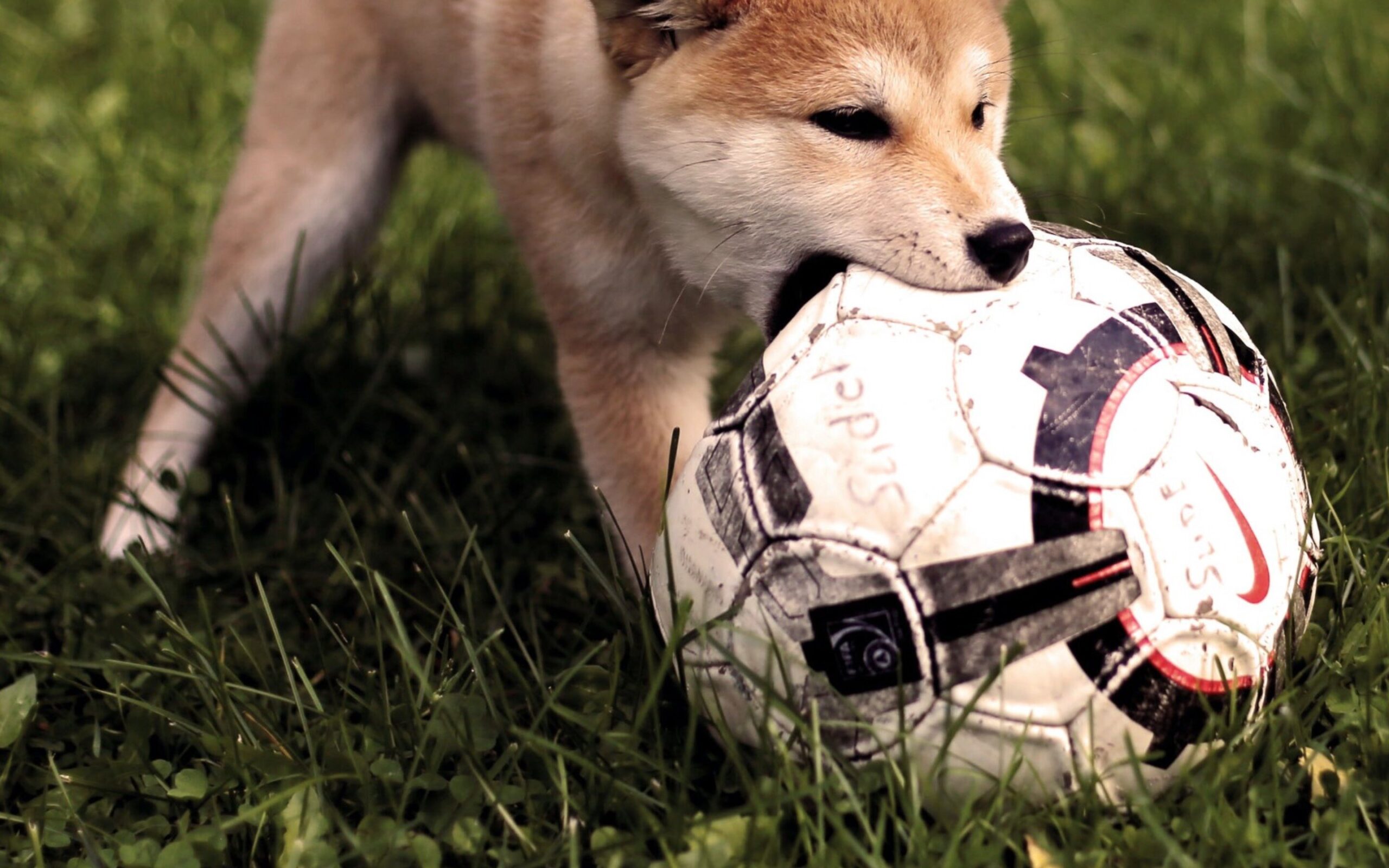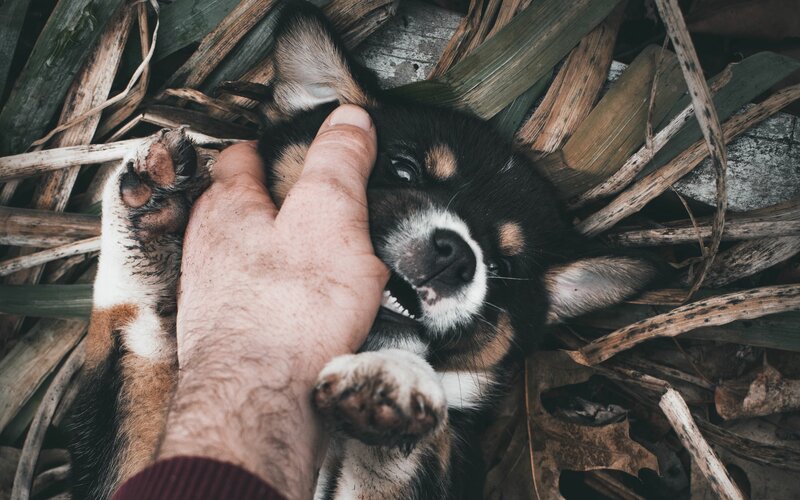
Puppy biting is normal. But that doesn’t make it any easier when those tiny jagged teeth are hanging off your jumper sleeve… or digging into your arm.
Most dog owners who have experienced the joys of owning a puppy will have faced the biting stage at one time or another. Finding ways to stop your puppy biting can lead to a more harmonious life for all involved.
But why do puppies bite? And how can you stop your puppy biting before it leads to bigger problems? Read on to find out, with insights from expert dog trainer, Steve Mann.

Why do puppies bite?
Much like human babies, puppies explore the world through their mouths. But quickly you’ll find this mouthing moves to nipping, and then the nipping moves to biting. This can be problematic, particularly if you have children in the house, or elderly family members whose skin is less resilient to the nips of a ‘land shark’, as Steve Mann affectionately dubs them.
As well as exploration, puppies can also nip and bite as a protest when they aren’t getting their own way. Think of it as a temper tantrum. Using their mouth (and teeth) is a way to communicate with you when you are perhaps missing more subtle signals.
Then there is the time when most dog owners will feel the true wrath of those sharp gnashers – play time. Play is incredibly important to puppies – not only is it lots of fun, but they also learn how to interact with the world around them through play.
Take some time to watch a group of puppies playing. You’ll notice lots of rough and tumble, and lots of play biting too. Yet, inevitably, every so often one puppy will bite another a little too hard. This usually will result in a high pitched yelp from one pup to signal to the other to back off a little bit, and both puppies will jump back and wait for a moment before they dive back in. This is how puppies learn something called bite inhibition. Bite inhibition is the ability to moderate the intensity of their bite so no one gets hurt. And the reward for learning this? Play can continue! This kind of socialisation is a key part of your puppy’s development.
While most puppies will mouth for the reasons outlined above, for some dogs excessive nipping or biting can be a sign of deeper behavioural issues, such as fear, frustration or early signs of aggression. If you suspect this may be the case, then get in touch with a behaviourist – they can help you work through any issues and get your puppy back on the right path to being a happy and well-adjusted dog when they grow up.

How do you stop a puppy from biting?
Now you understand why a puppy bites, the next step is to understand how you can stop your puppy biting.
As mentioned, socialisation with other dogs is an extremely important part of your puppy’s development. But did you know socialisation with humans is just as important? Puppies can learn to be gentle by playing with humans too.
Next time you’re playing with your puppy and things start to get a little too rough, make a high pitched yelp sound and pause play for a second or two. This is exactly how they learn from other puppies, and can work wonders. If this doesn’t work (some puppies mistake the sound for encouragement!) then yelp, fold your arms, look away and completely ignore your pup for 30 seconds. If, after 30 seconds, they are still trying to bite you, continue to ignore them until they have stopped, then reward their good behaviour with lots of praise and more playing.
Remember that certain kinds of play will simply encourage your puppy to bite. Waving your fingers or hands in their face is only going to encourage bites, so try to incorporate a toy into playtime. Make sure the whole family understands the best way to play with the puppy.
You may also find that your puppy has become very reliant on using their mouth to explore the world. If you suspect this is the case you could try some scent training, and teach them to use their nose to explore.
The key to stopping your puppy biting is consistency. They won’t stop mouthing and biting overnight, but if you are consistent and teach them other ways to explore and interact, with time they will learn not to get their teeth involved in everything.
Never use physical punishment for biting, as this can create a fearful puppy, which can lead to serious aggression problems further down the line. Positive reinforcement – i.e. rewarding good behaviour – is the kindest and most effective way to train your dog.
Remember, the vast majority of puppies will grow out of biting, but if you are concerned about your puppy’s behaviour you should seek professional help from a dog behaviourist or trainer. For the first step in puppy training, check out Steve Mann’s online dog training course.

Give the gift of knowledge
Surprise a special someone with a year's access to BBC Maestro or gift them a single course.





